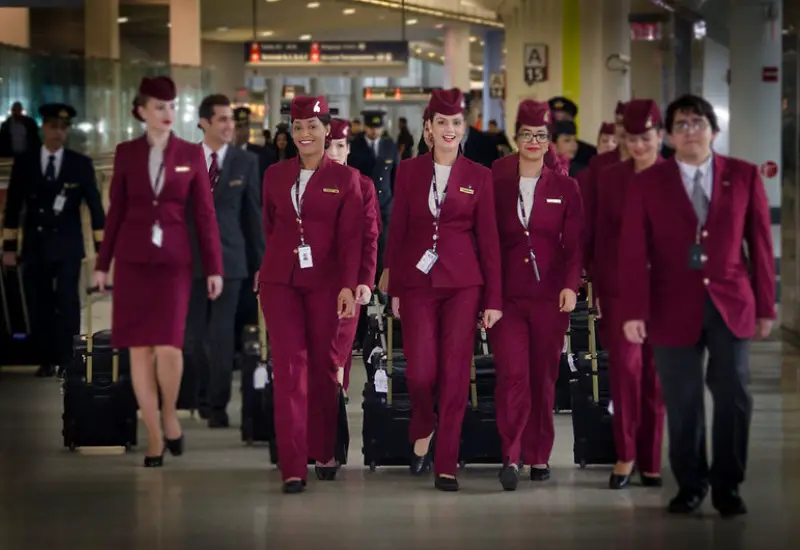
The short answer to that question? It’s hard, very hard.
But without the tips and information contained in this article, it will be a lot harder.
Firstly I’ll explain the reasons to why it’s so difficult to make it through the process and then I’ll give you some tips to help you navigate your way through the steps.
Remember that becoming a flight attendant is hard, but it is not impossible.
Table of Contents
Just getting an interview might be difficult
Many people apply over and over and they don’t even manage to get called back or invited to an assessment day.
The simple logic of this is that you can’t get an interview, then you have no chance of getting the job.
So let’s take a look at why this might be happening. There are three main reasons:
1) The number of candidates
Emirates receives an average of 15,000 applications per month and most major airlines are in the same position when it comes to the Cabin Crew jobs they advertise.
According to Delta, in 2017, they received 150,000 applications for the year.
An example of how fierce competition for flight attendant places is, with Southwest Airlines you have to have your resume ready to go because sometimes the airline only opens the application window for just a few hours and during that time you have to upload your resume.
2) Being filtered out by the system
Some airlines use an Applicant Tracking System that automatically filters candidates out.
ATS is a computer program that scans resumes for keywords matching those used in the airline’s job description and then selects the best candidates based on that.
As saw by the number of applicants, it is necessary for airlines to accelerate the recruitment process using this kind of program during the initial application stage.
Unfortunately, these systems aren’t always accurate and can filter potentially great candidates out.
The sad truth is that you might be rejected for a job before any HR recruiter has even laid eyes on your resume.
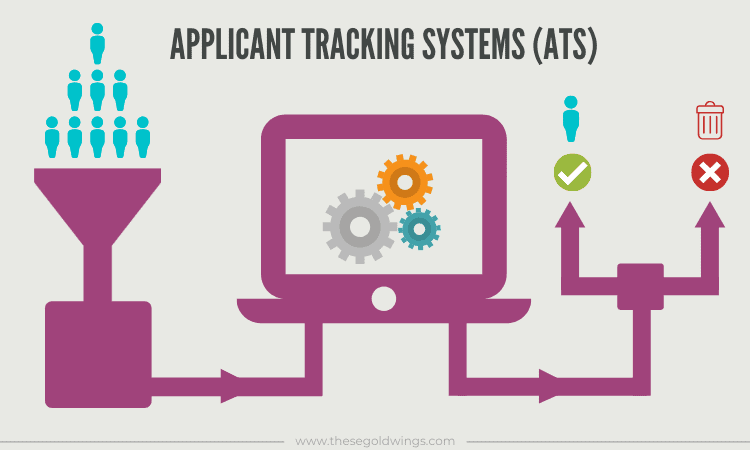
3) Not passing the first pre-screening test interview
Some airlines will also have a very detailed application form to fill in, where they will ask you typical interview questions such as: ‘Why do you want to work for us?’ ‘Introduce yourself’, or ask you airline scenario related questions.
Some have a video/digital interview as a pre-screening test.
This interview isn’t done live, each candidate will have to answer a few questions, record their answers on video and then submit the result.
Based on what they see and hear, recruiters will decide if they are giving you a chance or not.
My Tips:
- Make sure your application contains all the keywords mentioned in the job post you’re applying for.
- Incorporate a skills section to list keywords and include all the ones you think they are looking for. Try to think as the airline would think and write a list of the words that describes what they would be looking for.
- For the video interview, you can practice and re-record your video as many times as you want, so you can rehearse your answers until you have them down pat. Make sure that you make your interview in a quiet place, you have a neutral-colored plain background and that you have good sound quality. Look at the camera/computer as if you are maintaining eye contact with a real person. Getting this right is important. Poor quality in your video suggests poor quality in the applicant. You have more tips to prepare your video interview here.
Each airline has its own hidden selective criteria
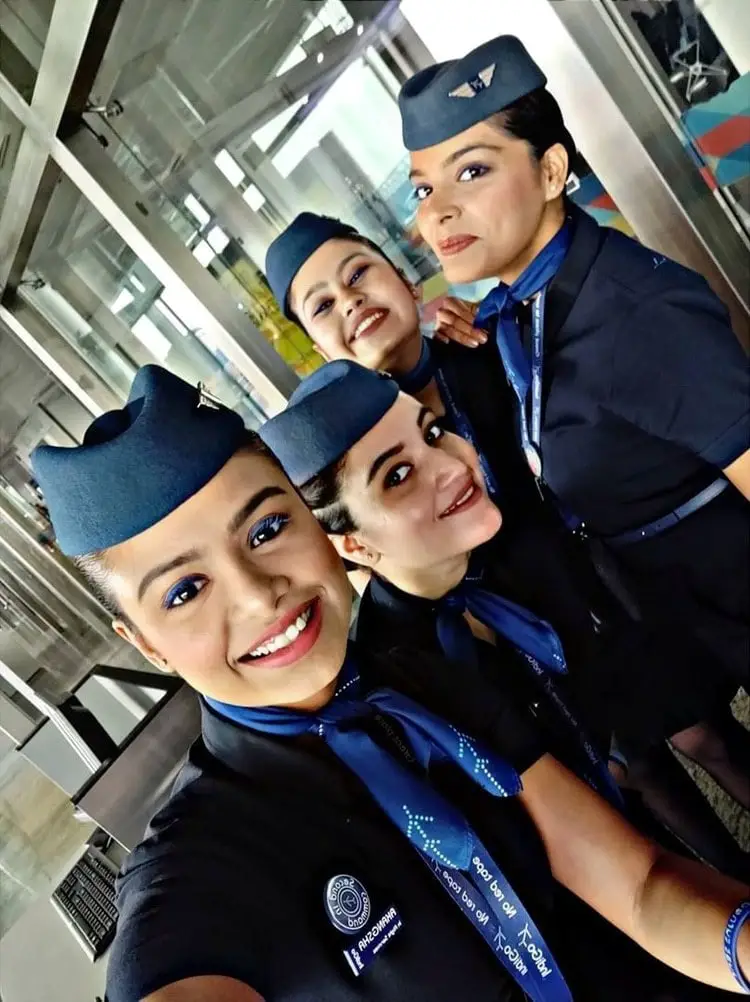
The requirements to apply for Cabin Crew jobs are relatively basic and most people are able to meet them: High school Diploma, fluent English, being able to swim unaided, no visible tattoos or piercings and customer service experience.
Basic and seemingly easy to achieve.
But that’s not exactly true or accurate.
It should come as no surprise to discover that airlines have their own screening criteria that they will never reveal.
Some airline companies require that Flight Attendants should be at least taller than 1.65m, younger than 30 years old, have straight and white teeth, have fair skin (in India and Asian countries) and a good height to weight ratio.
Some airlines can be even more specific. This may be a young woman, age 22–28, physically fit, slender, attractive and unmarried.
The truth is that they eliminate candidates based on “secret” criteria and they do discriminate.
I know, I know, it’s illegal to discriminate but that doesn’t mean that it isn’t done.
It certainly isn’t ethical or moral, but to many airlines it’s very important to have good looking cabin crew because it is good for their brand image and the customers’ perception of the airline as a whole.
But having said that, it’s not this way in all countries.
In countries such as the US, hiring is done more flexibly and reasonably.
Basically, if you can do the job, you could be hired. You don’t need to be a young beauty queen, you just need to pass the tests, show that you have great customer service skills and that you can deal with any emergency.
Skill over looks is important, not the other way round.
TIP: Do some research and make sure you meet all the requirements for the job.
If you don’t speak English well, prepare yourself and study for the tests.
If you are not tall enough, find other airlines with more flexible height requirements.
As best you can, find out as much about what the airline is looking for in a flight attendant and do all that you can to meet those requirements.
Look, I know it’s a harsh thing to say, but if you don’t meet the requirements and you have no chance of getting through the selection process, save yourself some heartache and massive disappointment and look elsewhere for a career.
Getting through pre-selection and then failing the interview
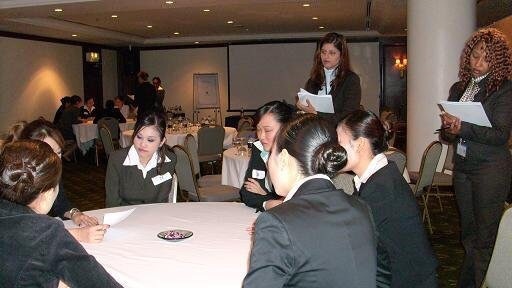
So you have made it through the hard and sometimes cruel pre-selection stages and you have scored yourself an interview.
Here is what you can expect and the many hurdles that you can fail at.
Firstly, this is usually a long and tiring day.
During the recruitment event/interview, there will be many exercises designed to analyze your behaviors to see if they match with the role of cabin crew.
Remember, in these tests, you will be judged on being you, so be the best person you can be.
First, there is the reach and height test to check that you meet the height required by the airline.
Then, group exercises to see how you perform in a group and collaborate with each other to complete the task while recruiters observe.
Then there is an English test, which can be a written, oral or a combination of both or even an online test.
And if you go that far, (and well done you if you have!) there is just one more stage to pass:
The final interview.
This is not just a formality. I repeat, the final interview is not just a formality.
You will still need to prove yourself and to be the version of you that there is.
There will be personality questions, tricky questions or airline scenario questions.
Remember that every stage in the selection process for flight attendant staff is eliminatory, which means, in sporting terms, it’s a knockout situation: fail a test and you get sent on your way, knocked out of the process.
I believe that there’s always a luck factor, you always need a bit of luck, but even with all the best luck in the world, there are still a set of skills expected from candidates if they are to finally get the job.
As I said in the beginning, the airlines are looking for a specific type of person, so strong my advice to you is:
Do your research so that you know exactly what to expect in your cabin crew interview and start practicing your answers and reactions.
And don’t be disappointed if you are rejected after a job interview.
Don’t give up, keep trying.
Different airlines look for different things, maybe you are not the perfect fit for Etihad but you might be for Emirates.
And that’s something you’ll never know unless you keep trying.
You can still fall at the final hurdle
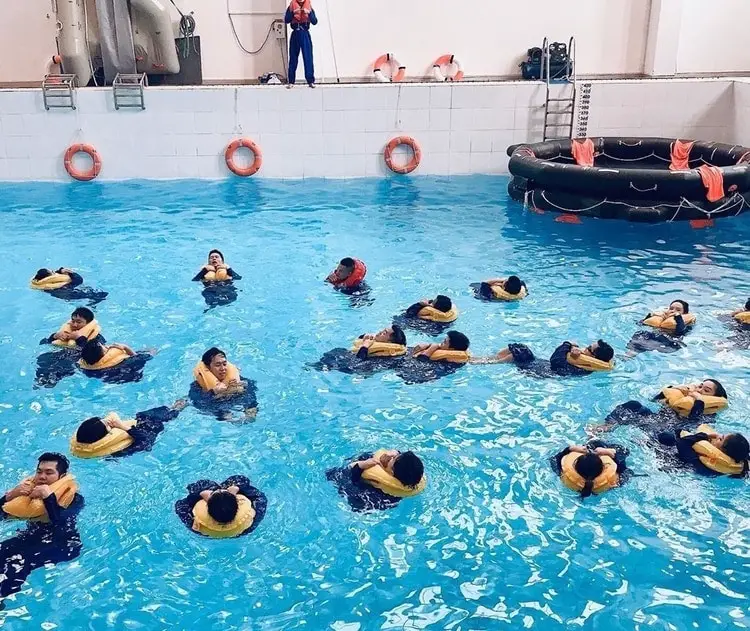
I know it all sounds a bit doom and gloom, but I really want you to know what you need to do to achieve your goal.
Okay, you have been lucky enough to make past the final interview and you are now a successful candidate, it’s all over.
Nope.
If you are luckily selected as a successful candidate, then the next phase is a training course with the airline company.
Fortunately, most successful candidates pass the training period and exams successfully and start working for the airline immediately.
But the training is hard.
As in, really hard.
Training can last anywhere from 4 to 8 weeks, 11 hours a day with just one day rest a week.
Written exams every day, practical exams, long days spent in the classroom and aircraft cabin mock-ups, it’s pretty fast-paced and relentless.
You’ll learn emergency procedures, memorize the layout of each aircraft, learn first aid treatments and practice your performances in a simulator.
And you’ll need to pass every exam with a 90% mark or higher.
Fail and you’ll be kicked out, sent home and not allowed to re-apply for 6 months.
And before or after this, depending on the company, you’ll have to pass :
- a swimming test (more about that in my article Do You Need to Be Able to Swim to Be a Flight Attendant?)
- many medical tests: sight, hearing, electro-cardio tests, blood tests, drug tests etc.
- five or ten-year background tests, in which you’ll have to prove everything that you’ve been doing in during those periods.
- And add to all that, a criminal record check.
Becoming a flight attendant is not just a matter of applying, being accepted, learning how to serve tea or coffee, and being a pretty or handsome face.
You can fail your first flight
Once hired, your next journey is a supernumerary flight.
This is where you’ll observe other crew members and become familiar with the aircraft cabin and all of its safety equipment and daily procedures.
Once done, a supervisor will check you during the flight while you perform your duties to see if you are qualified to act as a flight attendant.
After passing this, you can say you are a flight attendant.
Finally!
You will get a 3-6 month probationary period contract and then the day to day challenges of this exciting career really begins.
Conclusion
I’m sorry if I’ve sounded negative, that wasn’t my intention, but I don’t want to give you false hope by masking the realities of the application and selection processes.
This job is special.
It’s not like any other job on the planet and as you’ve seen, you really have to leap over many hurdles to secure it.
But once you are in, I promise you, it’s worth it.
You’ll make lifelong friends and you’ll become part of the world-wide flight attendant family.
Actually, it’s not really a job, it’s a lifestyle.
And because of that, all flight attendants have a special bond. And that’s part of why I love this career. We are all different but we all have something in common.
So hold on to and patience determination during the application and recruitment process and hopefully you’ll make it through.
And please don’t give up after being rejected.
Try to make it a learning experience and stay positive for the application. Every airline has its own set of ideas about what they look for in cabin crew, so it’s about finding the airline that ‘fits’ you, not the other way around.
I can’t guarantee that you will be successful in your application for flight attendant’s jobs, but I can definitely guarantee that you will fail unless you keep on trying.
Good luck and keep trying!
Thanks a lot for all the tips but I have a dream and I will fulfill it.Thank you so much.
Yes! That’s the spirit!
Don’t give up and best of luck.
I like this website I’ve learnt a lot since.
Thank you. Happy to help 🙂
Thanks a lot for your tips this will definitely help me through the application. 🙂
Great! Best of luck to you!
Thank you so much. I will get back here when I became a Flight Attendant 🤞💛
For sure! Let me know how it goes for you.
Good luck
I have an interview tomorrow my final interview before i find out if I’m going to make it gosh i have anxiety 😸😂 I’m stressed 😫😫
Ohhhh I know better than anyone what it is like to be stressed for an interview 😄
Good luck! I hope you’ll make it! 🤞
I’ve been rejected with Skywest and Horizon . I’m a physically fit and attractive 64 yr old retired OR/Trauma nurse of 25 yrs and ready for my next encore.
There has NEVER been a job I’ve applied to and not received so this has truly been a humbling experience as I’ve started this journey back in November.
I will not give up as I’m bound and determined. What an informative article to have read
Thank you 🙏
Hello Miheline,
Thank you so much for sharing your experience. Your determination is truly inspiring. The flight attendant journey can indeed be challenging and sometimes unpredictable. Your unique background in nursing and your resilience are admirable assets.
Keep pursuing your passion and don’t lose heart. The right opportunity might just be around the corner.
Best of luck on your continued journey.